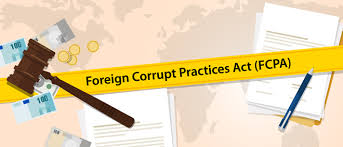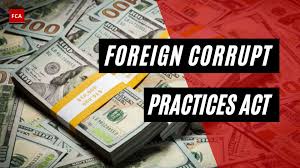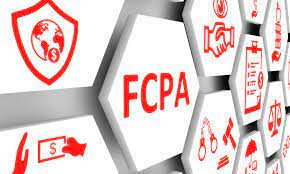Gunvor’s Bribery Schemes — Third-Parties, Shell Companies and Evasion of Controls (Part II of III)

Gunvor’s bribery scheme is not very surprising nor ingenious. After all, a number of energy trading companies have been prosecuted for bribery over the years, including Glencore, Vitol, Freepoint. Numerous individuals have been prosecuted, convicted and some have cooperated.
The global energy trading market presents numerous risk factors — large and valuable energy products (oil, gas etc.) are controlled by foreign-owned companies. All of these actors are considered “foreign officials” for purposes of the FCPA. The oil and gas industry has a rich history of corruption, bribery and favoritism.
Gunvor, like its competitors, Glencore and Vitol, is one of the largest energy trading companies in the world. Its participation in bribery in Ecuador is not surprising. Like its competitors, Gunvor enlisted the assistance of corrupt third party actors, embraced the use of shell companies, and then executed a long-standing bribery scheme to reward Ecuador officials in exchange for benefits — contracts, confidential information and other favorable benefits.
Between 2012 to 2020, Gunvor paid more than $97 million to third parties knowing that some of the money would end up in the pockets of Ecuadoran officials, including Nilsen Arias, a high-ranking official at Petroecuador. Arias was prosecuted by DOJ and plead guilty and cooperated with DOJ’s investigation.

Working through Raymond Kohut, Antonio Pere and his brother, Enrique Pere, as well as other individuals and intermediaries, as well as the Pere brothers’ shell companies, Energy Intelligence (“EIC”) and Oil Intelligence (“OIC”), Gunvor funneled bribes to Petroecuador officials to secure valuable benefits.
Kohut, who plead guilty and cooperated with DOJ’s investigation, helped to arrange the bribery scheme to participate in Petroecuador’s new program to develop oil-backed loans, through which other state-owned entities provided loans to Petroecuador secured by oil products to be delivered over a period of years. Private trading companies established relationships with the state-owned entities involved in these programs to market, sell and transport the oil products delivered.
Starting in 2011, Kohut arranged with his supervisor, the third-party, Antonio Pere, and Nilson Arias, a senior Petroecuador official, to arrange with Arias to ensure that a Gunvor-connected state-owned entity (SOE #1) qualified for the loan program. Later in 2011, Antonio Pere met with Nils Arias in Ecuador to secure an agreement to pay bribes to Arias in exchange for favorable award of oil-backed loans for the benefit of the Gunvor-backed state-owned entity.
In 2012, SOE 1 entered into several contracts with Petroecuador through which SOE 1 provided loans, financed by Gunvor, to Petroecuador secured by oil products. Gunvor entered into back-to-back agreements with SOE 1 to market the oil products delivered pursuant to the contracts between SOE 1 and Petroecuador.
Gunvor entered into “service agreements” with Aontonio Pere and Enrique Pere, through EIC, to facilitate the payment of bribes to Ecuadorian officials. The bulk of the payments reflected per-barrel “volume fee” payments to EIC. Antonio Pere and Enrique Pere used portions of the volume fees to pay bribes to Ecuadorian officials, including Arias, on Gunvor’s behalf.

In 2015, Gunvor expanded the scheme to include another state-owned entity (SOE 2) to provide loans, financed by Gunvor, to Petroecuador secured by oil products. Kohut and his supervisor, met with Nilsen Arias to secure a similar arrangement to that using SOE 1. Gunvor updated and expanded its “services agreement” with Antonio and Enrique Pere to include per-barrel payments related to oil products delivered pursuant to oil-backed loan agreements to SOE 2. Antonio and Enrique Pere used portions of these payments to pay bribes to Ecuadorian officials on Gunvor’s behalf.
Pursuant to this scheme, the Pere brothers submitted invoices to Gunvor through their companies EIC and OIC for payment of these fees. kohut routed the invoices in Gunvor for approval by his supervisors and others who were familiar with the scheme.
In exchange for the bribes, Arias and other Ecuadorian officials: helped to direct Petroecuador to award contracts to SOE 1 and SOE 2 to benefit Gunvor; and provide Gunvor confidential information about Petroecuador that assisted Gunvor in securing business for Gunvor in connection with Petroecuador.
In addition to the large volume-based payments, in 2014, after executing a specific contract, Antonio Pere, at Gunvor’s direction, bought Arias an 18-karat gold Patek Philippe timepiece worth approximately $38,000 in exchange for Arias’s assistance with approval of the contract and for providing confidential information to Gunvor. Arias left Petroecuador in 2017.
After Arias’ departure, Gunvor implemented a new method to execute the bribery scheme. Beginning in 2017, Antonio and Enrique Pere arranged with other officials in Petroecuador to pay bribes for contracts and confidential information. One Petroecuador official designated an intermediary to assist in executing the scheme.

Gunvor continued to make payments to Antonio and Enrique Pere based on per-barrel fees purchased by SOE 1 and SOE 2, and Kohut continued to coordinate processing and payment of the invoices. Antonio and Enrique Pere wired payments to intermediaries based in Ecuador for payment of bribes, to various Ecuador officials.
Throughout the conspiracy, and up until 2020, Kohut, his supervisor, Antonio and Enrique Pere met in the United States with each other and Petroecuador officials, in various combinations, to plan and execute the bribery schemes. In total, the Petroecuador officials received approximately $1.7 million in bribes on behalf of Gunvor. In total, Gunvor earned more than $384 million in profits from the contracts it obtained corruptly from Petroecuador.
Further, the conspirators acted to conceal the scheme and their communications. From the beginning of the conspiracy, participants were instructed to use personal email accounts under pseudonymous email accounts to communicate about the scheme. In addition, the conspirators often referred to co-conspirators by aliases rather than use their actual names.

Eventually, in 2018, Gunvor executives and compliance personnel were aware that tens of millions of dollars were paid to Antonio and Enrique Pere’s companies EIC and OIC without any supporting documentation to justify these payments. Starting in 2018 and continuing May 2020, Gunvor made requests to Antonio and Enrique Pere for supporting documents to justify the commission payments and to meet with executives and compliance personnel. Antonio and Enrique Pere repeatredly failed to respond to these document requests and would not travel to meet with Gunvor executives and compliance personnel. Notwithstanding thier resistance to these basic requests, Gunvor continued to make illegal payments to Antonio and Enrique Pere until January 2020. Gunvor terminated its service agreement with OIC and EIC in May 2020.















